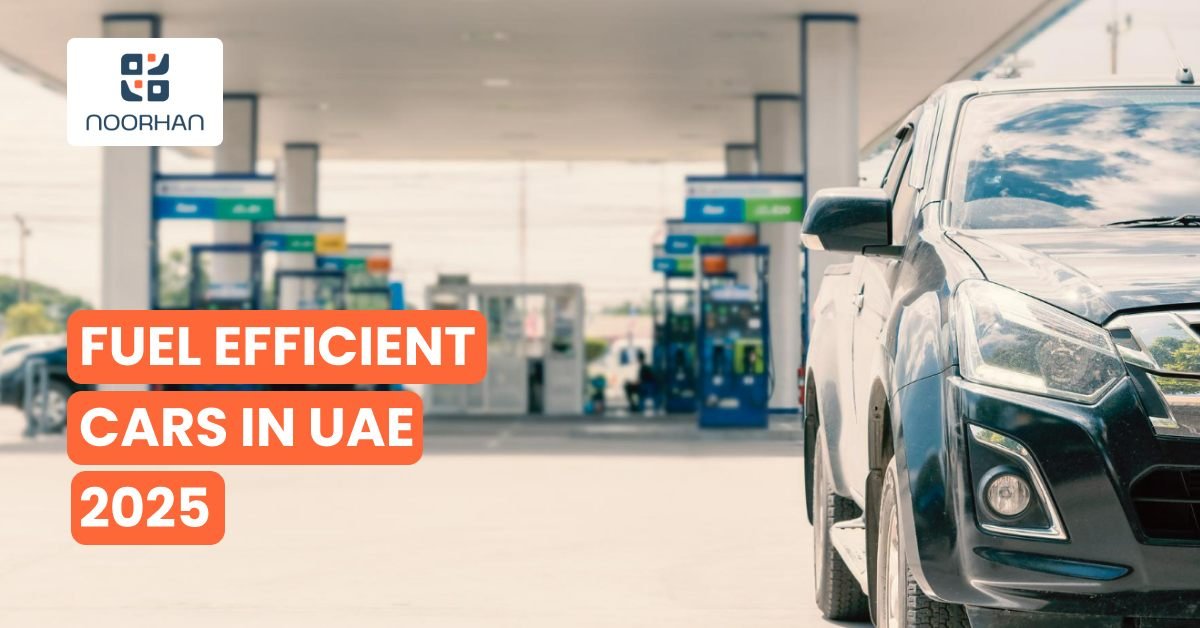-
Warning Signs of Low Brake FluidWarning Signs of Low Brake Fluid
-
Causes of Low Brake FluidCauses of Low Brake Fluid
-
Brake Fluid & Safety RisksBrake Fluid & Safety Risks
-
What to Do When Low Fluid Symptoms AppearWhat to Do When Low Fluid Symptoms Appear
-
Preventing Low Brake Fluid IssuesPreventing Low Brake Fluid Issues
-
Brake Fluid Types for UAE VehiclesBrake Fluid Types for UAE Vehicles
-
Professional Brake Services in the UAEProfessional Brake Services in the UAE
-
FAQsFAQs
Low brake fluid is a serious safety concern that every driver should understand. This critical automotive fluid powers your vehicle’s hydraulic braking system, and when levels drop, your safety is at immediate risk. In the UAE, where high-speed highways like Sheikh Zayed Road demand reliable braking performance, recognizing the signs of low brake fluid can literally save your life. Recent automotive safety studies show that brake-related failures contribute to approximately 22% of all vehicle accidents, making brake system maintenance a top priority. According to Dubai Police traffic statistics, mechanical failures including brake issues were factors in numerous accidents throughout 2024. Understanding low brake fluid symptoms and their underlying causes helps you maintain your vehicle properly and avoid dangerous situations on UAE roads.
What Are the Warning Signs of Low Brake Fluid in Your Vehicle?
Recognizing low brake fluid symptoms early prevents costly repairs and dangerous situations. Your car communicates problems through various warning signs.
Brake Warning Light Activation
Your dashboard brake warning light serves as the first alert system. Modern vehicles include brake fluid level sensors that monitor reservoir levels constantly. When fluid drops below safe operating levels, this warning light illuminates immediately.
The brake light can appear as either “BRAKE” text or a circular symbol with anclamation mark. Some vehicles combine this with ABS warning indicators. Don’t ignore these lights – they signal immediate attention requirements.
In UAE’s extreme heat, brake fluid can evaporate faster than normal climates. Regular monitoring prevents unexpected low fluid situations.
Soft or Spongy Brake Pedal Feel
Does your brake pedal feel different lately? A spongy or soft pedal indicates serious brake fluid issues. Normal brake pedals provide firm, consistent resistance when pressed.
Low brake fluid allows air to enter the hydraulic system. Air bubbles compress differently than brake fluid, creating that mushy pedal sensation. This compromises your stopping power significantly.
You might notice the pedal sinking toward the floor with sustained pressure. This symptom demands immediate professional inspection in any UAE service center.
Extended Stopping Distances
Have you noticed longer stopping times recently? Low brake fluid directly impacts braking efficiency and stopping distances. Your vehicle requires more time and distance to halt completely.
This symptom becomes particularly dangerous on UAE highways where traffic moves at high speeds. The extra stopping distance could mean the difference between a safe stop and a collision.
Test your brakes in safe conditions regularly. If stopping feels less responsive than usual, check brake fluid levels immediately.
Unusual Noises During Braking
Strange sounds often accompany low brake fluid conditions. Squealing, grinding, or scraping noises indicate multiple potential problems. Insufficient brake fluid affects brake pad performance and caliper operation.
When brake components lack proper hydraulic pressure, they operate inefficiently. This creates friction and noise during braking operations.
Metal-on-metal contact produces grinding sounds and indicates immediate service requirements. Don’t continue driving with these symptoms present.
Visible Brake Fluid Leaks
Check your parking areas for fluid puddles regularly. Brake fluid appears clear to light brown in color with a slick, oily texture similar to vegetable oil.
Leaks typically occur near wheels, under the brake master cylinder, or along brake lines. Fresh brake fluid looks clear, while aged fluid appears darker brown.
UAE’s sandy conditions can make leak detection challenging. Clean your parking area occasionally to spot new fluid deposits easily.
What Causes Low Brake Fluid Levels in UAE Vehicles?
Understanding the root causes helps prevent future low brake fluid problems. Several factors contribute to declining fluid levels.
Brake System Leaks
Leaks represent the most common cause of low brake fluid. Your brake system includes multiple components where leaks can develop over time.
Brake lines experience constant pressure and temperature changes. UAE’s extreme heat accelerates rubber deterioration and metal corrosion. Salt exposure from coastal areas worsens corrosion problems.
Master cylinders can develop internal or external leaks. Internal leaks often go unnoticed because fluid enters the engine compartment rather than dripping visibly.
Brake calipers contain seals that deteriorate with age and heat exposure. Failed caliper seals allow brake fluid to escape near the wheels.
Normal Brake Pad Wear
Did you know brake pad wear affects fluid levels? As brake pads wear down, brake caliper pistons extend further to maintain contact with rotors.
Extended pistons require more brake fluid to fill the additional space. This gradually lowers the fluid level in your reservoir over time.
Heavy traffic conditions in Dubai and Abu Dhabi accelerate brake pad wear. Frequent stop-and-go driving uses brake pads faster than highway driving.
Regular brake pad replacement maintains proper fluid levels and system performance. Don’t wait until pads are completely worn.
Heat-Related Brake Fluid Degradation
UAE temperatures regularly exceed 50°C during summer months. These extreme conditions affect brake fluid composition and performance.
High temperatures cause brake fluid to break down chemically. Degraded fluid loses its hydraulic properties and may evaporate more readily.
Overheated brake fluid can boil during heavy braking situations. Boiling fluid creates vapor bubbles that compress like air, reducing braking effectiveness.
Mountain driving on roads like Jebel Hafeet generates significant brake heat. Allow cooling periods after intensive braking sessions.
Moisture Contamination Issues
Brake fluid is hygroscopic, meaning it absorbs moisture from the atmosphere. Even small amounts of water contamination cause problems.
UAE’s coastal humidity accelerates moisture absorption in brake systems. Water contamination lowers brake fluid’s boiling point significantly.
Contaminated brake fluid appears darker and may contain visible particles. This fluid provides less hydraulic pressure and compromises safety.
Regular brake fluid replacement prevents moisture-related problems. Follow manufacturer recommendations for fluid change intervals.
Damaged Reservoir Components
The brake fluid reservoir cap maintains system pressure and prevents contamination. Damaged or loose caps allow fluid loss through evaporation.
Cracked reservoir containers leak fluid directly. These leaks may not be immediately visible but cause gradual fluid loss.
Faulty reservoir sensors can indicate low fluid when levels are adequate. However, don’t assume sensor problems without professional diagnosis.
Regular visual inspections identify reservoir problems before they cause safety issues.
How Does Low Brake Fluid Affect Your Safety on UAE Roads?
Low brake fluid creates multiple safety hazards that UAE drivers must understand completely.
Reduced Braking Power
Insufficient brake fluid dramatically reduces your vehicle’s stopping ability. The hydraulic system cannot generate adequate pressure to engage brake pads effectively.
This reduction becomes particularly dangerous during emergency situations. You might need twice the normal stopping distance to halt your vehicle.
High-speed driving on Emirates Road or Sheikh Zayed Road amplifies these risks significantly. Reduced braking power at highway speeds can be catastrophic.
Complete Brake System Failure
Severely low brake fluid can cause total brake failure. When fluid levels drop too low, the hydraulic system cannot function at all.
Brake failure at any speed is extremely dangerous. Without functioning brakes, you lose the primary safety system in your vehicle.
Emergency procedures like using the handbrake or engine braking become necessary. However, these alternatives provide limited stopping power compared to normal brakes.
ABS System Malfunctions
Low brake fluid affects Anti-lock Braking System operation. ABS requires adequate fluid pressure to function correctly during emergency stops.
Malfunctioning ABS increases stopping distances on wet or sandy road surfaces. UAE roads can become slippery during rare rain events.
ABS warning lights often accompany low brake fluid conditions. Address both issues simultaneously for optimal safety.
What Should You Do When You Notice Low Brake Fluid Symptoms?
Taking immediate action protects your safety and prevents further damage.
Immediate Safety Steps
Stop driving as soon as safely possible when you notice severe brake fluid symptoms. Find a secure parking location away from traffic.
Check brake fluid levels in the engine compartment. Most reservoirs have minimum and maximum level markings clearly visible.
If fluid appears extremely low or if you notice leaks, don’t attempt to drive further. Call roadside assistance or a tow truck.
Never ignore brake warning lights or spongy pedal sensations. These symptoms indicate serious safety risks that require immediate attention.
Professional Inspection Requirements
Schedule brake system inspection at authorized UAE service centers immediately. Qualified technicians can identify leak sources and system problems accurately.
Comprehensive brake inspections include checking all hydraulic components, brake pads, rotors, and fluid condition. This thorough approach identifies all related issues.
Request detailed explanations of any problems found. Understanding brake system issues helps you make informed repair decisions.
Don’t delay professional service when brake problems are suspected. Early intervention prevents more expensive repairs later.
Temporary Solutions vs Permanent Fixes
Adding brake fluid temporarily restores basic function but doesn’t address underlying problems. Use this only as an emergency measure to reach service facilities safely.
Purchase only manufacturer-recommended brake fluid types. Different fluid specifications aren’t compatible and can damage brake systems.
Permanent repairs require identifying and fixing leak sources. Simple fluid top-offs don’t solve systemic problems.
Professional repairs ensure long-term safety and reliability. Don’t compromise on brake system quality for cost savings.
How Can UAE Drivers Prevent Low Brake Fluid Problems?
Prevention strategies protect your safety and reduce maintenance costs significantly.
Regular Maintenance Schedules
Follow manufacturer-recommended brake fluid change intervals religiously. Most vehicles require fluid replacement every 2-3 years or 30,000-50,000 kilometers.
UAE’s extreme conditions may require more frequent service intervals. Consult your owner’s manual for specific recommendations.
Schedule brake system inspections every 6 months or 10,000 kilometers. Early problem detection prevents major failures.
Keep detailed maintenance records for warranty and resale purposes. Documentation proves proper vehicle care.
Environmental Considerations for UAE
Park in shaded areas whenever possible to reduce brake system heat exposure. Covered parking protects multiple vehicle systems simultaneously.
Allow brake cooling after mountain driving or heavy traffic situations. Avoid parking immediately after intensive braking sessions.
Use engine braking when descending steep roads like Jebel Hafeet. This reduces brake system workload and heat generation.
Consider upgrading to higher-temperature brake fluid specifications for severe duty applications.
Quality Component Selection
Choose OEM or equivalent quality brake components during replacements. Cheap parts often fail prematurely and compromise safety.
High-quality brake fluid resists moisture absorption and maintains performance longer. This investment pays dividends in system reliability.
Professional installation ensures proper procedures and component compatibility. DIY brake work can create dangerous situations.
Warranty coverage protects your investment and provides peace of mind. Keep all service documentation organized.
Understanding Brake Fluid Types and Specifications for UAE Vehicles
Different brake fluid types serve various vehicle requirements and operating conditions.
DOT Brake Fluid Classifications
DOT 3, DOT 4, and DOT 5.1 represent common brake fluid specifications. Each type has different boiling points and chemical compositions.
Higher DOT numbers generally indicate higher boiling points and better performance. However, compatibility with your vehicle system is crucial.
Never mix different DOT specifications in the same brake system. Chemical incompatibility can cause system failure.
Check your owner’s manual for specific brake fluid requirements. Using incorrect specifications voids warranties and creates safety risks.
Performance Characteristics
Boiling point specifications become critical in UAE’s extreme heat conditions. Higher boiling points prevent vapor formation during heavy braking.
Wet boiling points account for moisture contamination over time. This specification affects long-term performance and safety.
Viscosity characteristics ensure proper flow at temperature extremes. UAE experiences both extreme heat and occasional cool mornings.
Corrosion protection properties preserve brake system components. Metal brake lines and components require chemical protection.
Table: Brake Fluid Comparison for UAE Conditions
| Fluid Type | Dry Boiling Point | Wet Boiling Point | UAE Suitability |
|---|---|---|---|
| DOT 3 | 205°C | 140°C | Basic use only |
| DOT 4 | 230°C | 155°C | Standard recommendation |
| DOT 5.1 | 260°C | 180°C | High performance |
Professional Brake Service Options in the UAE
Finding reliable brake service providers ensures quality repairs and safety compliance.
Authorized Service Centers
Manufacturer dealerships provide factory-trained technicians and genuine parts. These centers maintain warranty compliance and quality standards.
Service scheduling through official channels often provides better warranty coverage. Documentation meets manufacturer requirements precisely.
Specialized brake service centers offer competitive pricing with qualified technicians. Research reputation and certifications before selecting providers.
Mobile brake services bring convenience but may lack comprehensive diagnostic equipment. Evaluate service scope carefully.
Service Quality Indicators
Look for technicians with recognized automotive certifications. Proper training ensures competent brake system service.
Modern diagnostic equipment identifies problems accurately and efficiently. Advanced tools provide better service outcomes.
Transparent pricing and detailed explanations build customer confidence. Avoid providers who can’t explain repair necessities clearly.
Customer reviews and recommendations provide valuable insights. Research service provider reputations thoroughly.
Cost Considerations for UAE Residents
Brake fluid replacement typically costs AED 80-150 depending on vehicle type and service provider. Premium fluids increase costs moderately.
Brake system repairs vary widely based on problem complexity. Simple leak repairs cost AED 200-500, while major component replacements can exceed AED 2000.
Emergency service calls include additional charges for convenience. Plan regular maintenance to avoid emergency situations.
Warranty coverage protects against premature part failures. Choose providers offering reasonable warranty terms.
Frequently Asked Questions
What does low brake fluid look like in the reservoir?
Low brake fluid appears below the minimum marking in your brake fluid reservoir. The fluid itself may look darker brown or black instead of clear to light amber, indicating contamination or age.
How long can I drive with low brake fluid in the UAE?
You shouldn’t drive at all with severely low brake fluid. If levels are slightly low, drive directly to the nearest service center. UAE’s high temperatures and traffic conditions make brake failure extremely dangerous.
What causes brake fluid to disappear quickly?
Rapid brake fluid loss usually indicates a leak in your brake system. Common leak sources include damaged brake lines, worn caliper seals, or master cylinder problems that require immediate professional attention.
Can I add any brake fluid to my car in the UAE?
No, you must use the specific DOT rating recommended in your owner’s manual. Using incorrect brake fluid can damage seals and compromise braking performance, especially in UAE’s extreme heat.
How much does brake fluid service cost in Dubai?
Basic brake fluid replacement costs AED 80-150 in Dubai. However, if leaks or component damage are present, repairs can range from AED 200-2000 depending on the severity.
Why does my brake pedal feel spongy after adding brake fluid?
A spongy pedal after adding fluid usually means air entered the brake lines. The system needs professional bleeding to remove air bubbles and restore proper brake feel and performance.
How often should I check brake fluid levels in the UAE?
Check brake fluid levels monthly in the UAE due to extreme heat conditions. Schedule professional brake system inspections every 6 months or 10,000 kilometers for optimal safety.
Conclusion
Low brake fluid symptoms require immediate attention from every UAE driver. From dashboard warning lights to spongy brake pedals, these signals indicate serious safety concerns that can’t be ignored. Understanding the causes of low brake fluid, whether from system leaks, brake pad wear, or heat-related degradation, helps you maintain your vehicle properly in UAE’s challenging conditions. Regular maintenance, quality components, and professional service ensure your brake system performs reliably when you need it most. Don’t compromise on brake safety – the consequences of brake failure on UAE roads can be catastrophic. Schedule regular brake inspections, address warning signs immediately, and always use qualified service providers for brake system repairs. Your safety and the safety of other road users depends on maintaining proper brake fluid levels and overall system integrity.








